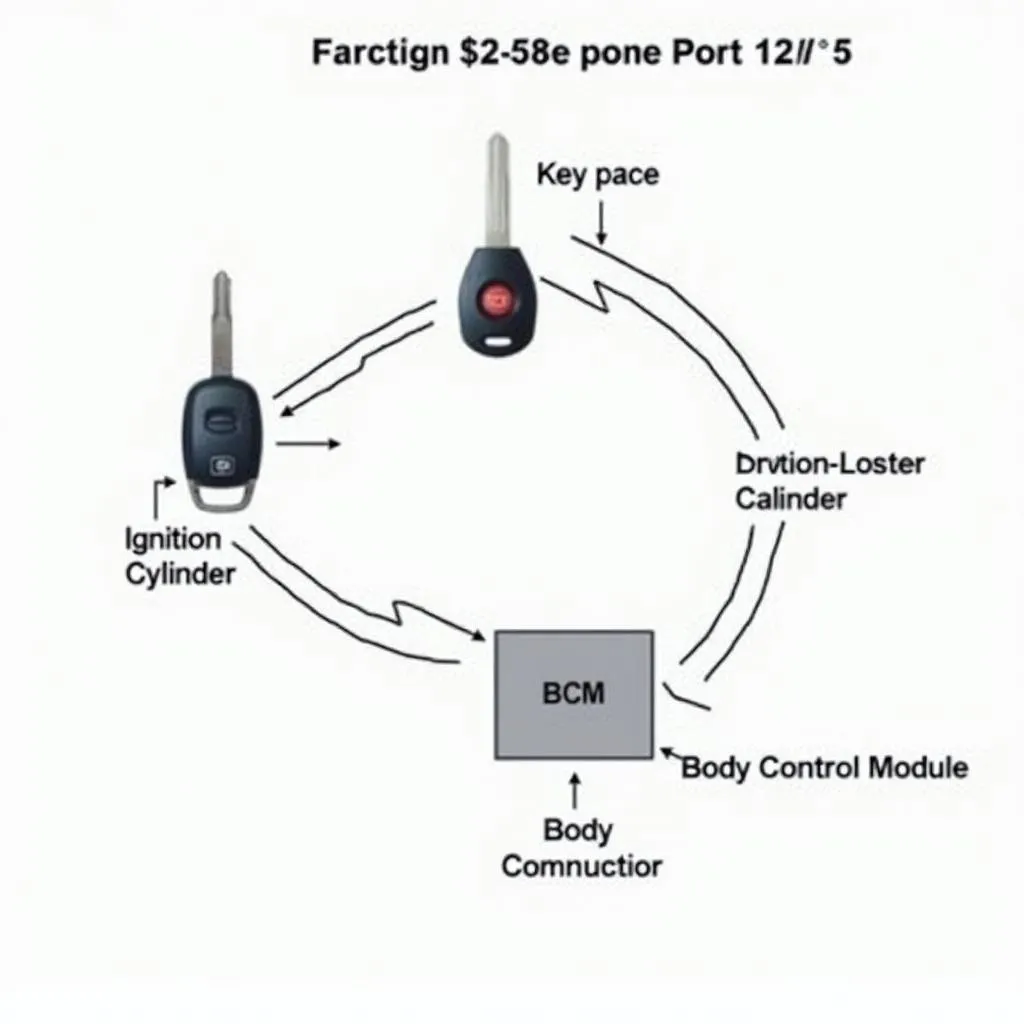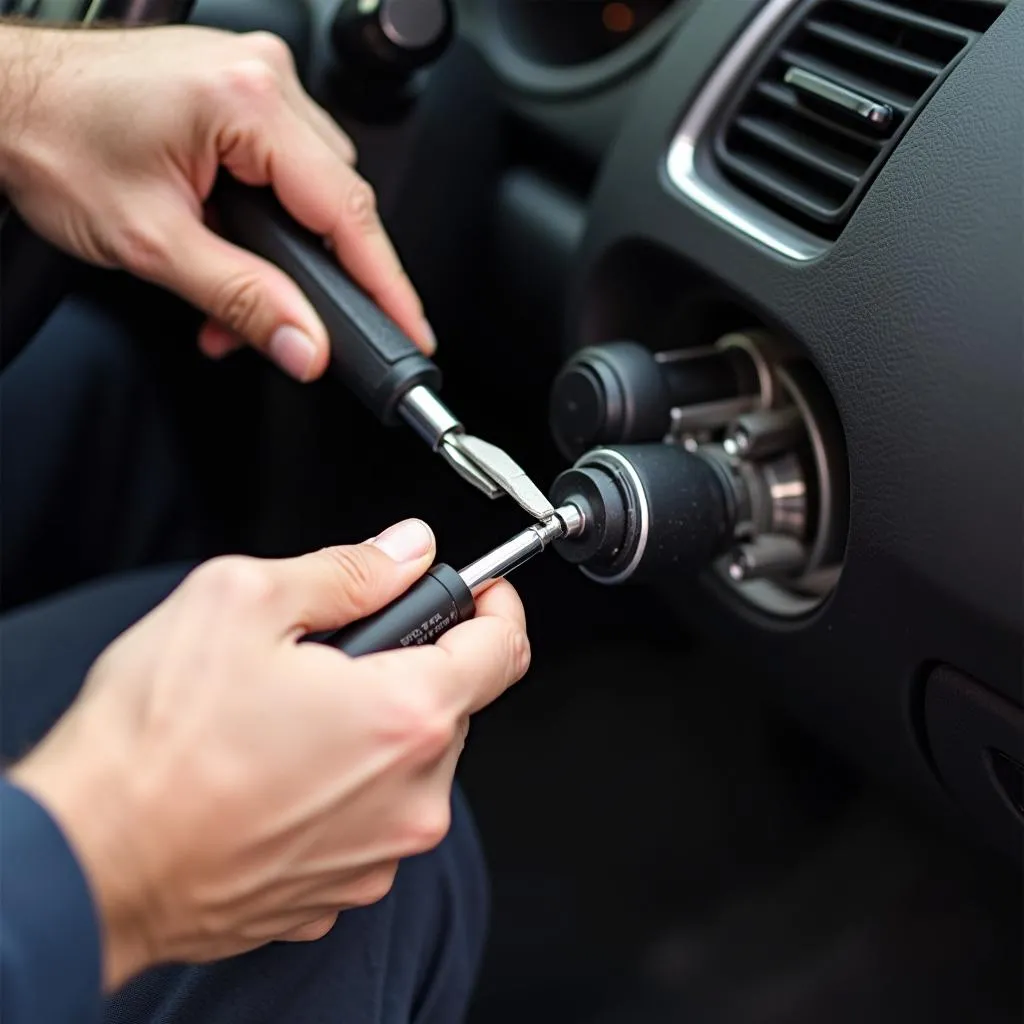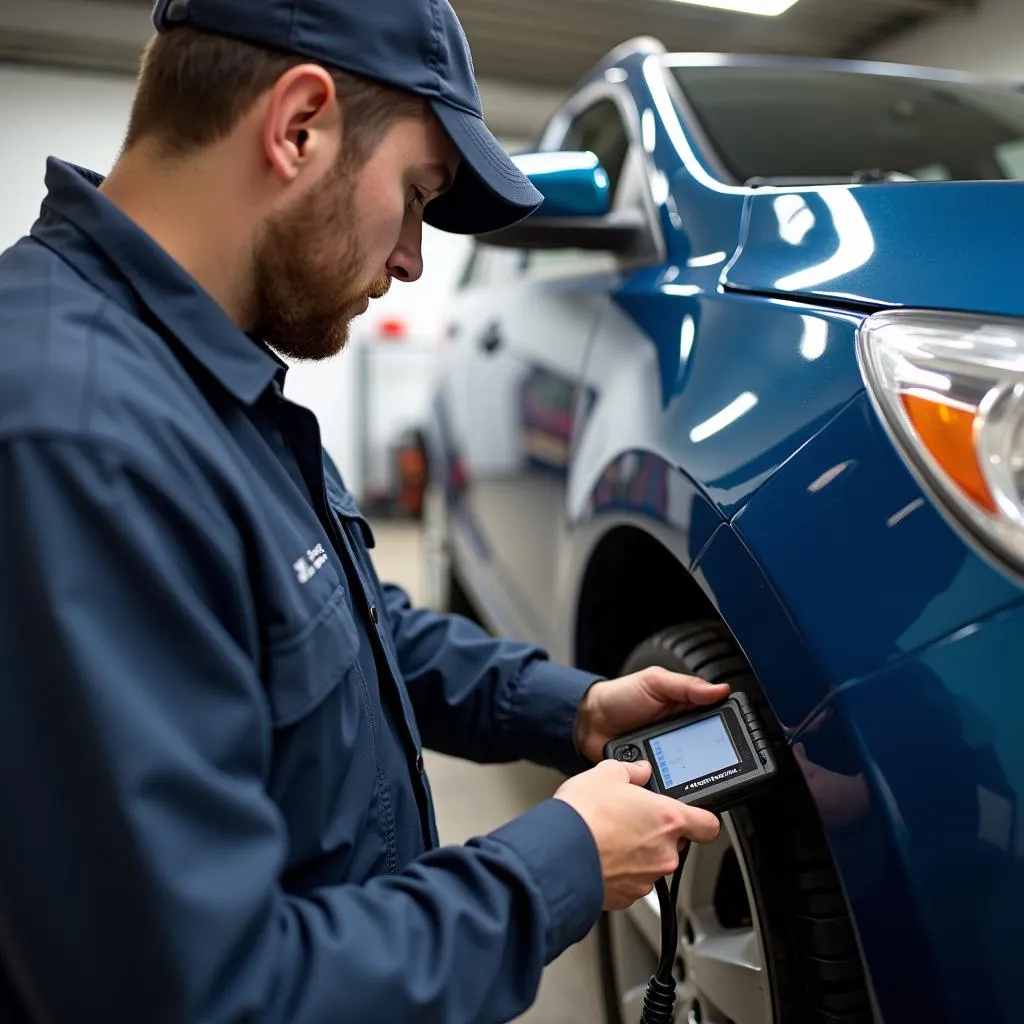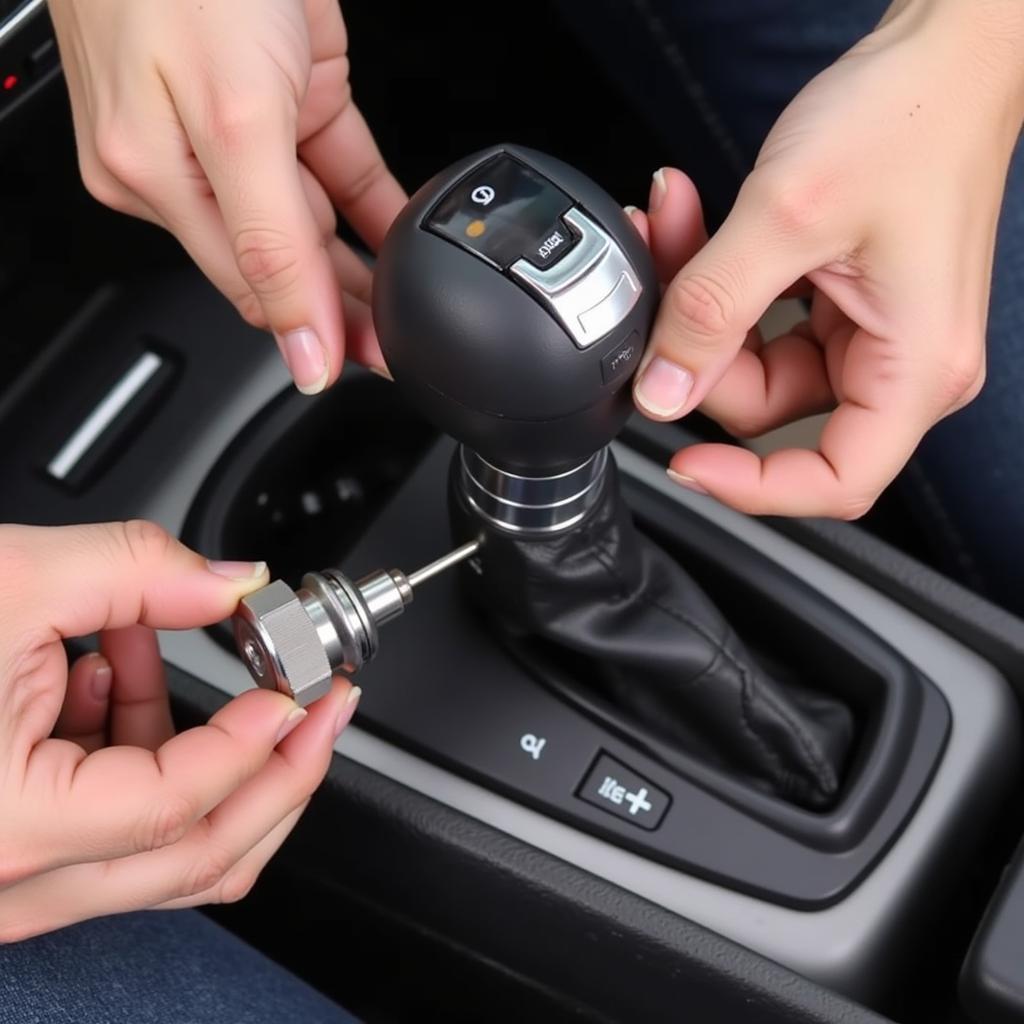Experiencing trouble with your GM anti-theft system? It’s a common problem, but it can be incredibly frustrating when it prevents you from starting your car. Whether you’re dealing with a malfunctioning key fob or a triggered immobilizer, understanding how to turn off the GM anti-theft system can be a lifesaver. This guide will walk you through the most common causes, symptoms, and solutions for disabling the system and getting you back on the road.
Understanding the GM Anti-Theft System
Before we dive into solutions, it’s important to understand how the GM anti-theft system works. Essentially, it’s designed to prevent vehicle theft by disabling the ignition system unless the correct key or key fob is present. When the system detects an unauthorized attempt to start the vehicle, it activates various security measures, such as:
- Disabling the Starter: The most obvious sign of an active anti-theft system is the inability to start your vehicle.
- Flashing Security Light: Keep an eye on your dashboard. A flashing security light is a telltale sign of an activated anti-theft system.
- Audible Warnings: Some GM vehicles may also sound the horn or activate the alarm to deter theft.
 GM Anti-theft System Diagram
GM Anti-theft System Diagram
Common Causes and Solutions
Here are some of the most common issues that can trigger the GM anti-theft system and how to address them:
1. Weak or Dead Key Fob Battery
One of the simplest and most frequent culprits is a low key fob battery. The weak signal can prevent the system from disarming.
Solution:
- Replace the key fob battery with a new one, ensuring it’s the correct type.
2. Faulty Ignition Switch
A malfunctioning ignition switch can send incorrect signals to the anti-theft system, making it believe someone is trying to steal your vehicle.
Solution:
- Diagnosing a faulty ignition switch usually requires professional tools and expertise. Contact a qualified mechanic or visit a trusted auto repair shop.
 Car Ignition Switch Repair
Car Ignition Switch Repair
3. Problematic Body Control Module (BCM)
The BCM is the brain behind many electrical systems in your GM vehicle, including the anti-theft system. If it malfunctions, it can lead to various issues.
Solution:
- Diagnosing and potentially replacing a faulty BCM is a complex task best handled by qualified technicians. Specialized diagnostic equipment, like those offered by Cardiagtech, can be used to pinpoint BCM issues.
When to Seek Professional Help
While some anti-theft system issues can be resolved with DIY fixes, more complex problems often require professional assistance. If you’re uncomfortable tackling these issues yourself or if the problem persists after trying basic troubleshooting steps, don’t hesitate to contact a qualified mechanic.
Remember, tampering with the anti-theft system without proper knowledge can potentially cause further damage. Professional technicians have the experience and tools to diagnose and repair your GM anti-theft system correctly.
 Mechanic Diagnosing Car Electronics
Mechanic Diagnosing Car Electronics
FAQs About GM Anti-Theft Systems
Q: Can I bypass the GM anti-theft system entirely?
While possible, bypassing the system is not recommended. It compromises your vehicle’s security and could even be illegal in some areas.
Q: My car key is stuck in the ignition. Is this related to the anti-theft system?
Yes, a stuck key can sometimes indicate a problem with the ignition cylinder or the anti-theft system’s interaction with it. It’s best to consult a mechanic to diagnose the issue.
Q: How much does it cost to fix a GM anti-theft system?
The cost of repair can vary significantly depending on the problem’s root cause. Simple fixes like a key fob battery replacement are relatively inexpensive, while more complex issues like a faulty BCM can be pricier.
Need Expert Help With Your GM Anti-Theft System?
For expert diagnostics and solutions for your GM anti-theft system, consider reaching out to Cardiagtech. We specialize in remote diagnostics, programming, and software installations to address various automotive issues. Contact us today to schedule a consultation and get your vehicle back in top shape.
Disclaimer: This information is for general knowledge and should not be considered a substitute for professional advice. Consult a qualified mechanic for diagnosis and repair of your specific vehicle.


